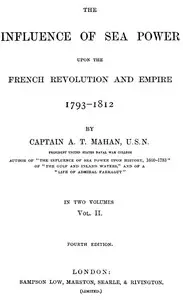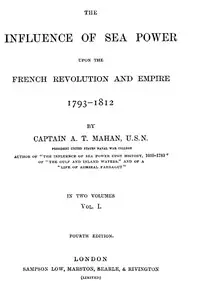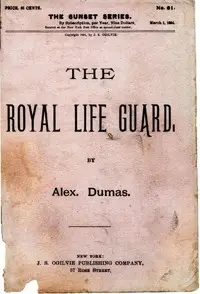"The Influence of Sea Power Upon History, 1660-1783" by A. T. Mahan, is a late 19th-century exploration of how naval dominance shaped world events and decided the winners of wars. Mahan makes the case that controlling the seas was essential to a country's success and safety from the late 1600s to the American Revolution. The book argues that historians often miss the important role of naval forces. It plans to correct this by looking closely at historical situations where naval strength made a big difference. Mahan shows how sea trade, maritime policy, and military plans are all connected, stating that a country's power on the water directly impacts how well it does and how steady it remains.

The Influence of Sea Power Upon History, 1660-1783
By A. T. (Alfred Thayer) Mahan
Discover how controlling the oceans determined the fate of nations and redrew the maps of power during a pivotal era of global conflict.
Summary
About the AuthorAlfred Thayer Mahan was a United States naval officer and historian, whom John Keegan called "the most important American strategist of the nineteenth century." His 1890 book The Influence of Sea Power Upon History, 1660–1783 won immediate recognition, especially in Europe, and with the publication of its 1892 successor, The Influence of Sea Power Upon the French Revolution and Empire, 1793–1812, he affirmed his status as a globally-known and regarded military strategist, historian, and theorist. Mahan's works encouraged the development of large capital ships — eventually leading to dreadnought battleships — as he was an advocate of the 'decisive battle' and of naval blockades. Critics, however, charged him with failing to adequately explain the rise of largely land-based empires, such as the German or Ottoman Empires, though Mahan did accurately predict both empires' defeats in World War I. Mahan directly influenced the dominant interwar period and World War II-era Japanese naval doctrine of the "decisive battle doctrine" , and he became a "household name" in Germany. He also promoted American control over Hawaii though he was "lukewarm" in regards to American imperialism in general. Four U.S. Navy ships have borne his name, as well as various buildings and roads; and his works are still read, discussed, and debated in military, historical, and scholarly circles.
Alfred Thayer Mahan was a United States naval officer and historian, whom John Keegan called "the most important American strategist of the nineteenth century." His 1890 book The Influence of Sea Power Upon History, 1660–1783 won immediate recognition, especially in Europe, and with the publication of its 1892 successor, The Influence of Sea Power Upon the French Revolution and Empire, 1793–1812, he affirmed his status as a globally-known and regarded military strategist, historian, and theorist. Mahan's works encouraged the development of large capital ships — eventually leading to dreadnought battleships — as he was an advocate of the 'decisive battle' and of naval blockades. Critics, however, charged him with failing to adequately explain the rise of largely land-based empires, such as the German or Ottoman Empires, though Mahan did accurately predict both empires' defeats in World War I. Mahan directly influenced the dominant interwar period and World War II-era Japanese naval doctrine of the "decisive battle doctrine" , and he became a "household name" in Germany. He also promoted American control over Hawaii though he was "lukewarm" in regards to American imperialism in general. Four U.S. Navy ships have borne his name, as well as various buildings and roads; and his works are still read, discussed, and debated in military, historical, and scholarly circles.

















